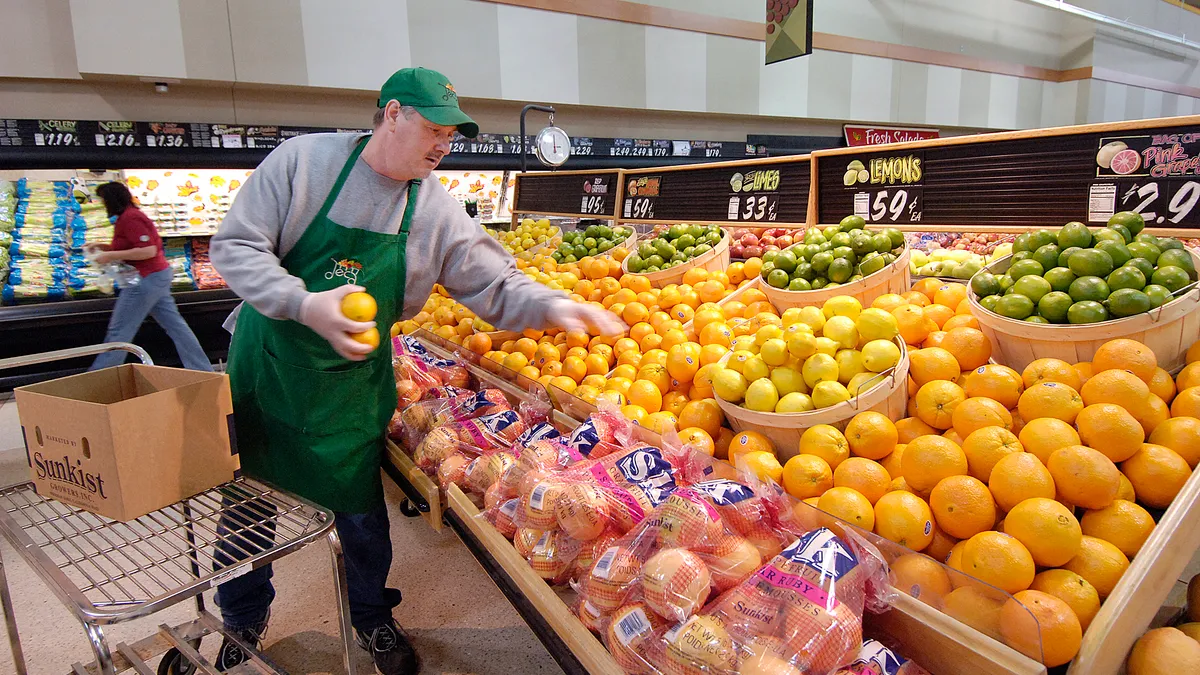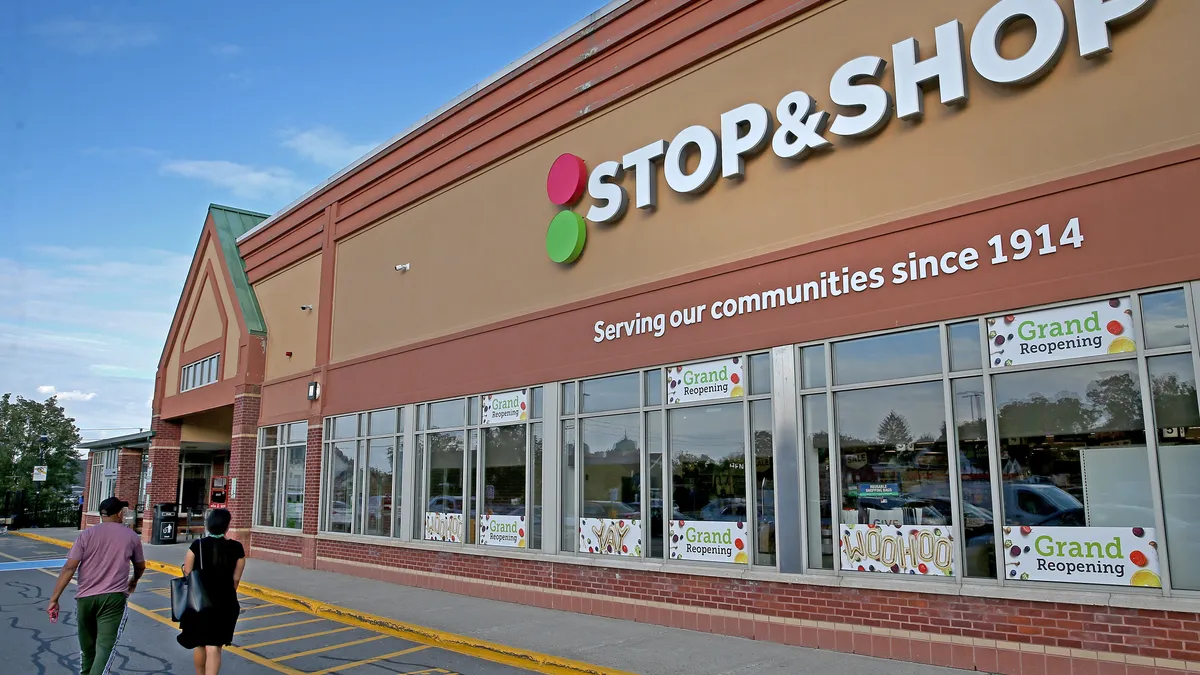Dive Brief:
- Although small grocers can’t compete with chain competitors on price and selection, many are succeeding with prepared foods, niche products and good customer service, according to The Associated Press.
- Woodlake Market in Kohler, Wisconsin sees a steady stream of lunch customers who come in for the packaged wraps, soups and salads the store offers, and Ski’s Meat Market in nearby Stevens Point draws in customers with its top-tier beef and cuts of steak that spend several weeks aging in a cooler before hitting the case.
- Small independent supermarkets account for just 0.2% of grocery industry sales, according to recent data from the U.S. Department of Agriculture’s Economic Research Service. Traditional supermarket formats like Kroger and Safeway account for 65% of industry sales.
Dive Insight:
As competition among chain grocers heats up, small players are having a tough time keeping pace with the flashy remodels, surging private label launches and other measures large retailers are taking to stand out. Without the investment capital to update their stores and selection, many independents risk becoming obsolete.
Many news reports have, in fact, painted a picture very different from the one outlined by The Associated Press, which focused on Wisconsin independents. One small grocer profiled by the Rochester Democrat & Chronicle said she put out a plea on social media telling people they need to patronize the store or it would close. She told the paper she experienced a surge in business to keep the store open in the short term, but said she would have to hold on to the new customers in order to stay afloat.
To survive heated industry competition that now includes surging discounters, dollar stores and specialty retailers in addition to chain competitors like Walmart, independent retailers have to be on top of their game. They need to give shoppers a compelling reason to visit their store — consumer interest in hometown pride and supporting the little guy will only get them so far.
To that end, small grocers need to use their community and local supplier connections to stock products that their customers want, and that the big guys don’t have. Successful independents are often known for one or two products, be it a killer sub, A-plus steaks or a great selection of locally sourced produce. Stores can build a business around these items, using them as the main draw while building incremental sales in other departments.
Many successful independents offer a signature product. Dave's Supermarket in Fairfield, Illinois draws in droves of breakfast customers with its “old world” donuts and free drip coffee, while Jungle Jim’s International Market, a one-of-a-kind club/grocery hybrid in southern Ohio offers a wide selection of international produce, beer and wine.
Natural grocers are particularly well positioned in this environment. While chain retailers duke it out on price and assortment, these grocers are able to demonstrate a deep commitment to values like local, organic and fair trade, as well as a collection of niche products that larger retailers often overlook. Natural Food Merchandiser reports nearly three-quarters of natural products stores saw their sales increase last year.
Small grocers have an opportunity to capitalize on quality and differentiation in their assortment. Still, these retailers need to be aware that their chain competitors are just as focused as they are — if not more so — on offering these qualities, too.










